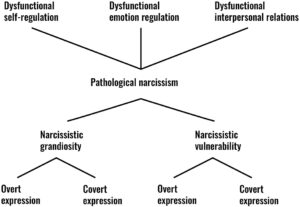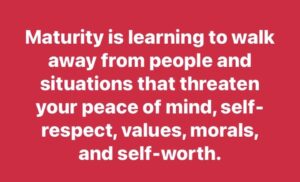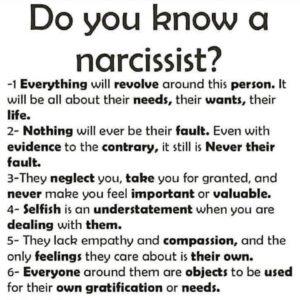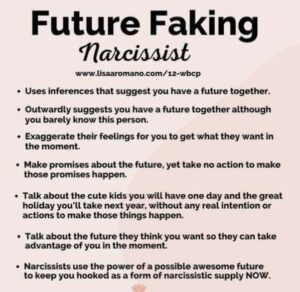Relationships with NPD Individuals 
In recent years, there has been a growing awareness of the impact of toxic and narcissistic individuals on our lives.
Terms like Narcissistic Personality Disorder (NPD) have become more widely recognized over the past 15 years, shedding light on behaviors that many people have struggled to understand and deal with. This understanding is crucial for those who find themselves entangled in relationships with narcissistic individuals who find themselves emotionally turmoiled ….whether they are spouses, parents, co-workers, or friends. 
Toxic individuals are often characterized by their manipulative, controlling, and harmful behaviors. They create an environment of negativity and distress, leaving those around them feeling drained and demoralized. Narcissists, in particular, exhibit a range of behaviors that are self-centered, grandiose, and lacking in empathy. They have an inflated sense of their own importance, a deep need for excessive attention and admiration, and a marked lack of regard for the feelings and needs of others.
One of the most insidious aspects of dealing with narcissistic individuals is the way they shift blame. When conflicts arise or they are confronted with their shortcomings, or in ‘complicated situations’ they adeptly deflect responsibility, making others feel at fault. This can lead to a cycle of self-doubt and overthinking for those on the receiving end, causing them to question their own actions and worth. The confusion is compounded by the narcissist’s ability to play the victim, turning the tables and portraying themselves as wronged, misunderstood, or unfairly criticized.
Dr. Ramani Durvasula, a renowned expert on narcissistic behavior, aptly captures the frustration of dealing with such individuals with her analogy: “You cannot change the weather in Chicago, you cannot change a toxic and narcissistic person.” This powerful statement underscores the futility of trying to alter the behavior of someone with NPD. Just as the weather in Chicago is unpredictable and beyond our control, so too are the ingrained patterns of toxic and narcissistic individuals. This analogy highlights the futility of trying to alter a narcissist’s behavior, as their deep-seated traits are resistant to change.
 Understanding that you cannot change a narcissist is a crucial step toward reclaiming your own sense of self-worth and sanity. It is essential to recognize that the problem does not lie with you, but with the narcissist’s inability to take responsibility for their actions and change their behavior. Instead, those affected must focus on strategies to protect their own mental and emotional well-being.
Understanding that you cannot change a narcissist is a crucial step toward reclaiming your own sense of self-worth and sanity. It is essential to recognize that the problem does not lie with you, but with the narcissist’s inability to take responsibility for their actions and change their behavior. Instead, those affected must focus on strategies to protect their own mental and emotional well-being.
Narcissistic Personality Disorder is characterized by a pervasive pattern of grandiosity, a constant need for admiration, and a lack of empathy for others. People with NPD often display an inflated sense of self-importance, believe they are unique and can only be understood by other special people, and have a deep-seated sense of entitlement. They tend to exploit others for their own gain, are envious of others, and often behave arrogantly. One of the most insidious aspects of relationships with narcissistic individuals is the confusion and self-doubt they can create in their victims.
Those targeted by narcissists frequently find themselves questioning their own actions and sanity, often wondering, “Is it me?” This relentless self-doubt is fueled by the narcissist’s tendency to deflect blame and never accept responsibility for their actions. When confronted with their shortcomings or indifference, they will typically assume the role of the victim, manipulating others’ perceptions and garnering sympathy and support—an effect amplified by their use of “flying monkeys,” or enablers who unwittingly or deliberately support the narcissist’s narrative and further isolate the true victim.
 Dr. Ramani’s book, “Should I Stay or Should I Go?” provides valuable insights and practical advice for people struggling with the decision to leave or stay in a relationship with a narcissist, particularly when children are involved. For those who decide to stay, she recommends practicing radical acceptance and employing techniques like the “grey rock” or “yellow rock” methods to minimize the narcissist’s impact.
Dr. Ramani’s book, “Should I Stay or Should I Go?” provides valuable insights and practical advice for people struggling with the decision to leave or stay in a relationship with a narcissist, particularly when children are involved. For those who decide to stay, she recommends practicing radical acceptance and employing techniques like the “grey rock” or “yellow rock” methods to minimize the narcissist’s impact.
RADICAL ACCEPTANCE: This involves acknowledging the reality of the narcissist’s behavior without trying to change it. This means accepting that the narcissist will not change and focusing on what can be controlled—your own reactions and boundaries.
GREY ROCK: It involves becoming emotionally unresponsive and uninteresting to the narcissist, thereby reducing their power over you.
YELLOW ROCK: Similarly, yellow rocking entails remaining pleasant and neutral, engaging only superficially and keeping interactions short and concise.
These strategies are essential for preserving one’s mental and emotional health when dealing with a narcissistic individual. Understanding the nature of narcissistic behavior and implementing protective measures can help those affected to regain a sense of control and peace in their lives.
Empowering yourself with knowledge about NPD and seeking support from others who have experienced similar relationships can provide the clarity and strength needed to overcome these challenging dynamics.
In sharing this awareness, we hope to enlighten those who may still be grappling with the confusion and self-doubt that come from dealing with toxic and narcissistic people.  By spreading awareness of NPD and the tactics used by narcissists, we can empower more people to recognize these toxic patterns and take steps to safeguard their mental and emotional well-being.
By spreading awareness of NPD and the tactics used by narcissists, we can empower more people to recognize these toxic patterns and take steps to safeguard their mental and emotional well-being.
By recognizing these behaviors and understanding that you are not to blame, you can begin to protect yourself from further harm and take steps toward healing and empowerment.
It is not about fixing the narcissist but about finding ways to coexist with them without losing oneself in the process.

